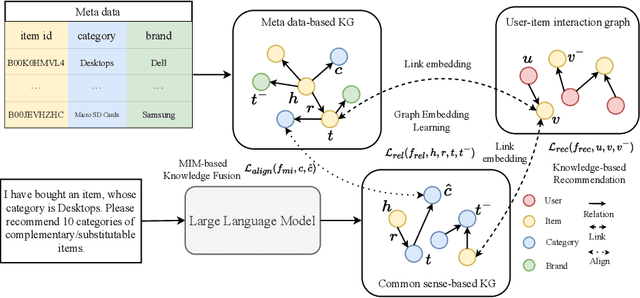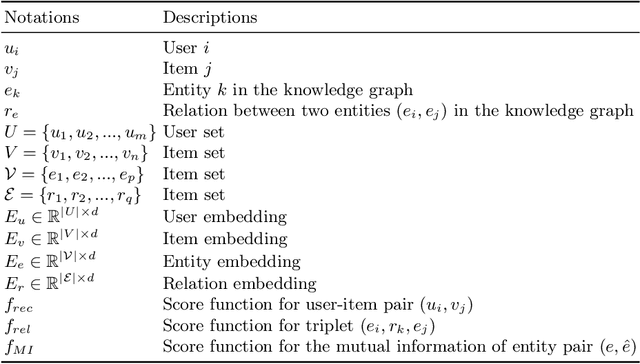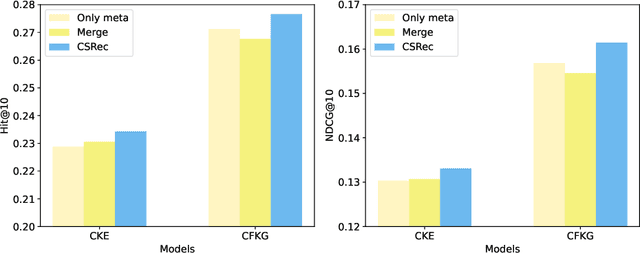Common Sense Enhanced Knowledge-based Recommendation with Large Language Model
Paper and Code
Mar 27, 2024



Knowledge-based recommendation models effectively alleviate the data sparsity issue leveraging the side information in the knowledge graph, and have achieved considerable performance. Nevertheless, the knowledge graphs used in previous work, namely metadata-based knowledge graphs, are usually constructed based on the attributes of items and co-occurring relations (e.g., also buy), in which the former provides limited information and the latter relies on sufficient interaction data and still suffers from cold start issue. Common sense, as a form of knowledge with generality and universality, can be used as a supplement to the metadata-based knowledge graph and provides a new perspective for modeling users' preferences. Recently, benefiting from the emergent world knowledge of the large language model, efficient acquisition of common sense has become possible. In this paper, we propose a novel knowledge-based recommendation framework incorporating common sense, CSRec, which can be flexibly coupled to existing knowledge-based methods. Considering the challenge of the knowledge gap between the common sense-based knowledge graph and metadata-based knowledge graph, we propose a knowledge fusion approach based on mutual information maximization theory. Experimental results on public datasets demonstrate that our approach significantly improves the performance of existing knowledge-based recommendation models.
 Add to Chrome
Add to Chrome Add to Firefox
Add to Firefox Add to Edge
Add to Edge